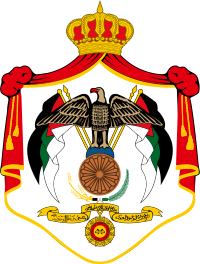The electoral threshold, or election threshold, is the minimum share of votes that a candidate or political party requires before they become entitled to representation or additional seats in a legislature.

Single non-transferable vote or SNTV is an electoral system used to elect multiple winners. It is a semi-proportional variant of first-past-the-post voting, applied to multi-member districts where each voter casts just one vote. SNTV generally makes it unlikely that a single party will take all seats in a city, as generally happens with winner-take-all systems. SNTV can be considered a variant of dot voting where each voter has only one point to assign.

Open list describes any variant of party-list proportional representation where voters have at least some influence on the order in which a party's candidates are elected. This is as opposed to closed list, in which party lists are in a predetermined, fixed order by the time of the election and gives the general voter no influence at all on the position of the candidates placed on the party list.
Regular elections in Croatia are mandated by the Constitution and legislation enacted by Parliament. The presidency, Parliament, county prefects and assemblies, city and town mayors, and city and municipal councils are all elective offices. Since 1990, seven presidential elections have been held. During the same period, ten parliamentary elections were also held. In addition, there were nine nationwide local elections. Croatia has also held three elections to elect members of the European Parliament following its accession to the EU on 1 July 2013.
At a national level, Greece holds elections for its legislature, the Hellenic Parliament.

Elections in Jordan are for the lower house, known as the House of Representatives, of the bicameral parliament of Jordan, as well as for local elections. They take place within a political system where the King has extensive legislative and executive powers, retaining ultimate political control. The Prime Minister is selected by the King, the PM is then free to choose his own Cabinet. The parliament has quotas: three seats for Circassians and Chechens, nine for Christians and fifteen for women. The electoral system favours rural tribes and those of East Bank origin over urban areas that are primarily inhabited by those of Palestinian descent.
In electoral systems, a wasted vote is any vote cast that is not "used" to elect a winner, and so is not represented in the outcome. However, the term is vague and ill-defined, having been used to refer to a wide variety of unrelated concepts and metrics. The precise definition of a wasted vote can have a major impact on the conclusions of an analysis. For example, under the narrowest possible definition of a wasted vote, the single transferable vote (STV) can be considered to waste zero votes. However, if the wasted vote definition is expanded even slightly, it is possible for up to 100% of STV votes to be classified as wasted because STV fails the unanimity criterion; that is, it is possible to elect a legislature that every single voter agrees is worse than some alternative.

Parliamentary elections were held in Ukraine on 26 March 2006. Election campaigning officially began on 7 July 2005. Between November 26 and 31 December 2005 party lists of candidates were formed.

The New Zealand parliamentary electoral system has been based on the principle of mixed-member proportional (MMP) since the 1996 election. MMP was introduced following a referendum in 1993. It replaced the first-past-the-post (FPP) system New Zealand had previously used for most of its history. Under the MMP system, New Zealanders have two secret ballot votes to elect members of Parliament (MPs). The first vote is for a candidate from an electorate, a geographic electoral district. The second is the party vote for the political party the voter wants to form the government.

General elections were held in Jordan on 20 November 2007. Following the election, Prime Minister Marouf al-Bakhit and his cabinet resigned, as it normally followed in the Jordanian political system. King Abdullah II appointed Nader al-Dahabi as the new prime minister on 22 November to lead a new technocratic government.

The Parliament of Jordan is the bicameral Jordanian national assembly. Established by the 1952 Constitution, the legislature consists of two houses: the Senate and the House of Representatives.

The 2008 Western Australian state election was held on Saturday 6 September 2008 to elect 59 members to the Legislative Assembly and 36 members to the Legislative Council. The incumbent centre-left Labor Party government, in power since the 2001 election and led since 25 January 2006 by Premier Alan Carpenter, was defeated by the centre-right Liberal Party opposition, led by Opposition Leader Colin Barnett since 6 August 2008.

Early general elections were held in Jordan on 23 January 2013. Voter turnout was reported to be 56.6%.

Early general elections were held in Kuwait on 27 July 2013. The elections were required after the Constitutional Court dissolved Parliament and annulled the results of the December 2012 elections. Voter turnout was an estimated 52.5%, which was higher than expected despite an opposition boycott, and only 7% lower than the non-boycotted February 2012 elections.
The Argentine law 24,012 or Argentine quota law seeks to increase the number of women in government in Argentina, by setting quotas for the minimum representation of women on the ballots of each party at the legislative elections. The law was enacted in 1991, during the presidency of Carlos Menem, and was the first gender quota law to be passed in Latin America. Following Argentina's lead, eleven other Latin American countries have since introduced gender quotas to increase female representation at the national level.
Section 13 of the Constitution of Australia provides for three aspects of the terms of members of the Australian Senate: the timing of elections, the commencement date of their terms and for the Senate to allocate long (six-year) and short (three-year) terms following a double dissolution of the Parliament of Australia. While members of the House of Representatives and territory senators have a maximum three-year term, state senators have a fixed six-year term, subject only to the parliament being dissolved by a double dissolution.

General elections were held in Jordan on 20 September 2016 to elect the 18th House of Representatives. The elections were announced after parliament was dissolved by King Abdullah II on 29 May 2016, with the King appointing Hani Mulki as interim Prime Minister following the resignation of Abdullah Ensour.

Parliamentary elections were held in Georgia on 31 October and 21 November 2020 to elect the 150 members of Parliament. The ruling Georgian Dream party led by Prime Minister Giorgi Gakharia won re-election for a third term in office, making it the first party in Georgian history to do so. The elections also saw a record number of opposition parties elected to parliament.

General elections were held in Jordan on 10 November 2020 to elect the members of the nineteenth House of Representatives. Voter turnout was just 30%, the lowest in a decade.

General elections were held in Jordan on 10 September 2024 to elect the 20th House of Representatives, the lower house of the Parliament of Jordan.








